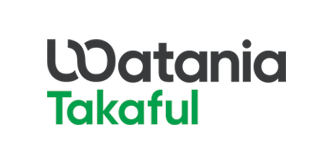Buy Best Term Life Insurance in Dubai, UAE
Term insurance in the UAE ensures your family’s financial security if you’re no longer around. It provides a lump sum payout to your beneficiaries in the event of your death during the policy term, helping them manage daily expenses, settle debts, or cover plans like education and healthcare.
What is Term Insurance in UAE, Dubai?
Term insurance is a type of life insurance. It offers financial protection for a set period — usually between 5-35 years. In case of the death of the insured individual in the policy tenure, the insurance company pays a death benefit to the insured’s beneficiaries.
It offers a lump sum payout to your beneficiaries if you pass away during the policy term, ensuring your family is taken care of in difficult times. With flexible coverage options, you can choose the sum assured and policy length that best fits your needs.
Whether you have growing children, a mortgage, or other financial commitments, term insurance provides peace of mind knowing your family’s future is secure. Plus, premiums are typically lower than other types of life insurance, making it an accessible choice for many. It’s straightforward, reliable, and designed to give you the protection you need at an affordable price.
Read What is Term Insurance and know more about the term plan and how it works.
Best Term Insurance Plans in UAE
Here are the best term insurance quotes in UAE:









Term Insurance Insights
| Particulars | Specification |
|---|---|
| Term Insurance Cost | Starting at AED 50 |
| Plan Coverage Amount | AED 1 million |
| Minimum Entry Age | 18 years |
| Maximum Entry Age | 65-79 years depending on the insurer |
| Term Insurance Plans Tenures |
Starting 5 years to 35 years |
| Countries Covered | 190+ Countries covered |
| Coverage |
|
| Who Should Buy a Term Insurance |
|
| Features & Benefits |
|
| Claim procedure | Can Claim both online and offline |
| Claim Settlement Ratio | 94-98% |
Best Term Insurance in Dubai, UAE 2025
Here’s the rundown of the best term life insurance plans in UAE for your reference —
| HAYAH Term Life Protect | Zurich International Term Assurance |
|---|---|
|
|
| MetLife Live Life | MetLife Live Life Now |
|
|
| Sukoon Lifeguard | Orient International Term Plan |
|
|
| Takaful Emarat Fixed Term | LIC Life Protect Term Plan 278 |
|
|
Key Features of a Term Life Insurance Plan
Before buying a term life insurance policy, it is important to understand what you are getting into.
Here’s an overview of the general features of term life plans —
| Feature | Description |
|---|---|
| Affordable Premium | Term life insurance is cost-effective due to its pure life cover nature. While it lacks an investment component, it offers higher coverage, ensuring your loved ones are protected. |
| Easy to Buy | You can easily purchase a term plan online through platforms like Policybazaar.ae, completing the process from home in just a few clicks. |
| Flexibility to Pay Premium | Choose a premium payment method that suits your budget—single, limited, or regular pay options are available. |
| Coverage Period | Offers fixed-term coverage ranging from 5 to 35 years. No maturity benefit is paid, keeping premiums low. |
| Death Benefit | If the policyholder passes away during the policy term, a predetermined lump-sum death benefit is paid to the nominee. |
| Optional Riders | Enhance your policy with add-ons like accidental death, waiver of premium, disability, terminal illness, and critical illness riders. |
Why Do You Need Term Insurance?

Javed's Term Insurance Plan
Age: 27 years old
Lifestyle: Non-smoker
Type of Plan: 25-year Term Insurance Plan
Coverage Amount: AED 1000000
Premium: AED 974/year
Purpose of the Plan
Financial Protection: Securing the family's future even in his absence
Peace of Mind: He knows that his family is taken care of no matter what.

Who Should Buy Term Insurance in Dubai, UAE?
Term Cover is crucial for working individuals, young parents, and people with dependent family members. To secure their loved ones during unforeseen circumstances, they need to buy a suitable plan. Following individuals must choose a term protection plan.
Young Professionals
Parents
Newly Married Couple
Self Employed Individuals
Working Women and Single Parents
Young professionals who started working recently have lesser liabilities. It is the best time for them to choose a term insurance plan since they can avail of high insurance benefits with low premiums.
Being the sole earners of the family, parents need term insurance to protect their dependents against unfortunate events and secure them financially.
A term insurance plan safeguards your spouse, assisting them in managing financial matters even in the event of your passing.
Being a self-employed individual, you have dual obligations. One towards your loved ones and the other towards your business. The term plan benefits can help secure your venture and your dependent family members.
Working women and single parents should consider a term cover plan to secure their loved ones from unforeseen situations.
How Does Term Insurance Protect Your Family?
Term plans provide financial security to the policyholder’s family. By paying death benefits in case of the life assured’s death, these plans help protect dependents like the policyholder’s spouse, children, or elderly parents from financial strain.
Such policies are especially useful for newly married individuals, new parents, or business owners with debts or financial responsibilities. They can cover daily expenses or fund goals like a child’s education.
The payout of term insurance can be made periodically or as a lump sum after a claim is filed. Additionally, if you, as a policyholder, pay a bit extra on the premium, you can get coverage for additional risks like critical illnesses, waiver of premium or accidental disabilities. You can also increase coverage at key life events such as marriage or becoming a parent.
What are the 4 Types of Term Life Insurance?
There are various types of term plans in UAE that you can choose as per your security needs and family obligations:
1. Level Term Insurance
It is the most common type of term insurance UAE. In a level term plan, the premium is pre-decided and remains unchanged throughout the tenure. Among all the term insurance plans, a level term cover is the cheapest in UAE.
2. Increasing Term Plan
An increasing term plan is a term policy that increases your assured sum every year at a specific rate. The rate of increment is pre-defined and disclosed to the policyholder at the time of purchasing the plan. The increasing term cover is best suited for individuals with changing life situations since the assured sum increases tackling inflation. Here, the premium for term life insurance UAE may or may not change over the period as per your insurer.
3. Decreasing Term Plan
Unlike increasing term cover, decreasing term plans reduce the assured sum with every passing year. Again, the declining rate of the assured sum is pre-specified as per your age and health during the plan purchase. Decreasing term policy is suited for individuals with active loans or mortgages. Such term plans work on the notion that your liability decreases with your age, which shows in the reducing sum assured too.
4. Convertible Term Insurance
With convertible term insurance UAE, you get the option of converting your policy into whole life insurance, endowment, or money back plan. Individuals with changing financial situations can opt for convertible term insurance. To convert your plan, the insurer may require additional documents or medical check-ups as per the policy requirements.
How to Find the Right Term Insurance Plan in UAE?
Here’s how you can find the best term life insurance policy for yourself —
- Compare plans from multiple insurance providers
- Check the Claim Settlement Ratio (CSR) of insurers — this figure gives the idea of the number of claims settled against the total claims received
- Understand your requirements — when getting term insurance Dubai, consider your current income and liabilities as well as your family’s needs, future plans, and more
- See how easy the claim settlement process is — go with a company that has a straightforward process so that you don’t have to rush in time of emergency
- Look for a plan that offers riders or add-ons — you can use them to increase the coverage of your term insurance UAE at nominal additional prices
How to Buy Term Insurance from Policybazaar.ae
With Policybazaar.ae, getting the best term policy is just a matter of a few clicks. Here’s how you can get the best term insurance in UAE in 5 simple steps:

When you buy term life insurance online via Policybazaar.ae, you get an additional advantage of 24x7 expert assistance to help you wherever you get stuck. Alternatively, you can visit your selected provider’s nearby office and submit your application in person.
Key Features of Term Insurance in Dubai, UAE
How to Get Term Insurance at Affordable Rates?
Listed below are a few steps that you can take to get the best term insurance in UAE at affordable premiums —
- Start as early as possible: As we saw before, the younger you start, the lower your premiums. So even if you didn’t get a term life insurance policy earlier, it’s better to get it now rather than waiting for more time!
- Maintain a healthy lifestyle: Regularly exercising, maintaining optimum BMI, and others can lead to a better life (and lower premiums too!). This is because insurance providers consider your health when assessing your premiums.
- Give up smoking: Besides leading to various diseases, smoking can also increase your costs for term life insurance UAE quite a bit!
Note: In case you’ve been a smoker, don’t forget to disclose it to your insurer. Hiding information can lead to claim rejections later. - Choose a suitable term and coverage: With the right policy tenure and coverage, you can fulfill your family’s requirements without stretching your budget.
With that said, keep in mind that it’s not only about premiums! While you might think getting a cheaper plan is good, it can also cause problems or insufficient coverage when your family makes a claim. This can actually leave them without any financial support in unfortunate circumstances.
Which Insurance Company is Best for Term Plans?
| Insurer Name | Plan Name | Claim Settlement Ratio | Min Age | Max Age | Min Premium |
|---|---|---|---|---|---|
| Zurich Insurance | Critical Illness Protection | 98.00 % | 18 | 74 | 0 |
| Salama Insurance | Hemayati Plus | 18 | 55 | ||
| Takaful Emarat | Fixed Term | 98.20 % | 20 | 60 | 71 AED/Monthly |
| Arabia Insurance | Term Life Executive 2 | 95.00 % | 15 | 70 | |
| Arabia Insurance | Term Life | 95.00 % | 15 | 70 | |
| Zurich Insurance | International Term Assurance | 98.00 % | 18 | 74 |
What is the Difference Between Term Insurance and Life Insurance?
A term policy is a type of policy that financially secures the beneficiary in case the policyholder, unfortunately, passes away during the policy tenure. A whole life insurance plan is a policy that remains active throughout the policyholder’s life.
| Parameter | Term Insurance | Life Insuramce |
|---|---|---|
| Tenure | You can select the policy tenure from 5, 10, 15, 20, 25, or 30 years | Usually the entire life of the policyholder |
| Benefits | The beneficiary only receives the death benefit but there are no maturity benefits | The beneficiary receives a death benefit — in case the policyholder survives the tenure, they may receive a maturity benefit |
| Premium | Nominal since there is only life cover and no other benefit | Usually higher than term insurance |
| Cash Value | No cash value — only a death benefit is provided if the policyholder passes away during the policy tenure | There is a cash value that accumulates over time |
| Surrender Value |
If the policyholder stops paying premiums on a term plan, the insurance will lapse after a 30-day grace period Term plans don’t have a surrender value, and you won't get back any premiums paid |
You can exit a whole life insurance plan before it ends, but you'll face consequences You'll lose the maturity benefit and only get part of the premiums back However, if you stay invested for 3-5 years and then exit, you will receive a surrender value. |
If you are looking for more affordable options, you can opt for a term policy. However, if you want investment and insurance in one place, you can explore life insurance.
Read More: Difference Between Term and Life Insurance
Why Compare Term Insurance Policies Online?
When you compare term plans online, here’s what you can enjoy —
| ✅ Get AED 1 Million Cover Starting at just AED 50 per month | ✅ Best term policies from the leading providers in one place |
| ✅ Zero hassle – all work done from the comfort of your home | ✅ Accurate details so that you make an informed decision |
| ✅ Easily find both inclusions and exclusions | ✅ Check the most relevant add-ons as per your plan |
*T&Cs apply
Which Factors Affect Your Term Insurance Premiums?
Here’s an overview of the top factors that affect term insurance costs —
| Age | Younger people usually get lower premiums due to lower health and mortality risks |
| Health | Premiums are lower for those without any major illnesses than those having such a record |
| Sum assured | The higher the sum assured or death benefits, the higher your premium for term insurance UAE |
| Policy term | Generally, the longer you get coverage for, the higher your premiums |
| Lifestyle habits | If you smoke or drink regularly, your premiums might increase |
What is Covered in Term Life Insurance — and What’s Not?
|
Inclusions
|
Exclusions
|
|---|---|
| Death due to natural causes or medical conditions | Death after the maturity of term policy |
| Death due to accidents | Death due to foreign invasions, wars, or warlike situations |
| On diagnosis of a terminal illness with less than 12 months of survival period | Death due to an undisclosed or pre-existing health condition |
| Diagnosis of critical illnesses | Death due to alcohol or drug abuse |
| Permanent and total disability during the insurance tenure | Death as a result of criminal activity under UAE laws |
| Premium waiver in case of total disability | Death caused due to sexually transmitted diseases like HIV-AIDS |
Term Insurance UAE & Dubai Payout Options
Can NRIs Buy Term Insurance in India?
Yes, NRIs can buy term insurance from Indian insurance providers. As an NRI, when you buy term insurance from India, you get the following benefits –
- High life coverage at affordable premiums
- Flexible premium payment methods — lump sum or regular (monthly, quarterly, half-yearly, or annually)
- Financial security for the life assured’s family in case the former passes away during the policy tenure.
- Flexibility to choose the policy tenure
- Easy documentation process
- Option to customise the plan with additional riders – accidental death, waiver of premium, critical illness benefit, and more
Note that there are 2 factors to consider when buying an NRI term insurance policy –
- Policy tenure — NRIs should give the policy tenure a thorough thought when buying a term insurance plan. Usually, experts recommend that the coverage should be for at least till you are 65 years old.
- Policy coverage — As an NRI, you should also consider the policy coverage amount. For this, take factors like inflation, expenses, debts, policy type, income, and other significant events into consideration.
How to Decide the Right Tenure for a Term Insurance Policy?
Take note of the following factors when deciding a term insurance plan tenure—
- Age: Your age determines the available term for a term insurance plan. For example, a 30-year-old may get a tenure of up to 35 years, while a 50-year-old might get only 15 years. The younger you are, the longer the available term.
- Liabilities: If you have loans, your insurance cover should match the outstanding amount and EMI duration. This ensures that your family can repay the debt if something happens to you.
- Financial Goals: Align your term plan with major life milestones so that your family’s financial needs are met even in your absence.
- Maximise the Duration: Choose the longest term available for your age to safeguard against future uncertainties. If needed, you can discontinue later without penalties. .
Additionally, longer tenures usually have lower premiums. Make sure that the premium fits both your budget and long-term savings plans.
Additional Add-ons for Term Insurance in UAE
To enhance and customise your term insurance plan, insurance providers in UAE offer additional protection via add-on riders. With a nominal increase in your premium, you can include these riders in your base protection plan.
Here are some popular add-ons for the best term life insurance in UAE —
| Add Ons | Features |
| Critical Illness cover | The company provides coverage in case of life-threatening illnesses such as cancer, stroke, and more. On the diagnosis of a critical illness, the company provides a lump sum. You can use it for medical expenses as well as day-to-day needs and loss of income. |
| Accidental Death Cover | Beneficiaries get an extra amount in addition to the death benefits in case you die due to an accident. The accidental death benefit is calculated based on the base plan and may have an upper limit as per the insurer. |
| Terminal Illness Cover | Your beneficiaries get a fraction of the assured sum if you are diagnosed with a terminal illness. This amount helps your family cope with situations and meet urgent medical expenses. |
| Permanent Disability Cover | The insurer compensates your income for around up to 10 years in case of loss of employment due to disability. This way, your family can maintain their prior lifestyle even during unforeseen situations. |
| Premium Waiver Cover | In case of inability to work due to accident or illness, the insurer waives your subsequent premiums while the policy remains active until the pre-decided tenure. |
Documents Required to Purchase Term Life Insurance
Along with satisfying the term life insurance eligibility criteria, you need to submit relevant documents as proof of your identity, age, and address.
The following is the list of documents you need to submit while purchasing a term policy in UAE.
- Emirates ID for UAE nationals and residents,
- Valid Passport for expats with a valid Emirates ID
- Utility bills for address proofs.
Know More About Term Insurance
Term Insurance FAQs
Top Term Insurance Providers
More From Term Insurance
- Recent Articles
- Popular Articles











































